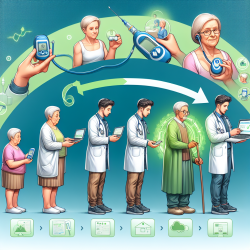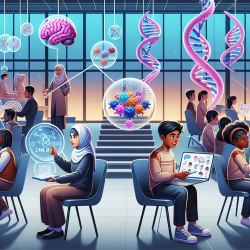Introduction
The recent research article "Crises as Catalyst" offers a profound perspective on how crises can drive transformation. While the article primarily focuses on worker rights and societal contracts, its implications extend to various fields, including speech-language pathology. As practitioners dedicated to improving children's outcomes, we can harness the insights from this research to enhance our practice and advocate for systemic changes that benefit our clients.
Understanding the Crises
The article identifies three intersecting crises: climate change, the COVID-19 pandemic, and extreme economic inequality. Each of these crises impacts health and well-being, including communication disorders. For instance, the pandemic has highlighted the importance of teletherapy in ensuring continuity of care. Economic inequality can limit access to necessary speech-language services, and climate change may disrupt educational settings, affecting children's learning and communication development.
Opportunities for Transformation
Crises present opportunities for innovation and change. In speech-language pathology, this means:
- Embracing Teletherapy: The pandemic has accelerated the adoption of online therapy. Practitioners should continue to refine and expand teletherapy services, ensuring they are accessible and effective for all children, regardless of their socioeconomic status.
- Advocating for Equitable Access: Economic inequality should not be a barrier to receiving quality speech-language services. Practitioners can advocate for policies that ensure all children have access to necessary interventions, regardless of their background.
- Integrating Environmental Considerations: As climate change affects educational environments, speech-language pathologists can collaborate with educators to create resilient communication strategies that adapt to changing circumstances.
Data-Driven Decisions
To effectively navigate these crises, speech-language pathologists must rely on data-driven decisions. This involves:
- Utilizing Evidence-Based Practices: Continuously updating our knowledge and skills based on the latest research ensures that we provide the most effective interventions.
- Collecting and Analyzing Data: By systematically collecting data on therapy outcomes, practitioners can identify trends, measure progress, and adjust interventions to better meet the needs of their clients.
Encouraging Further Research
The insights from "Crises as Catalyst" should inspire practitioners to engage in further research. Investigating how these crises specifically impact communication disorders can lead to more targeted and effective interventions. Collaboration with researchers across disciplines can also enhance our understanding and response to these complex challenges.
Conclusion
The crises of our time offer a unique opportunity to reimagine and improve our practice in speech-language pathology. By embracing innovation, advocating for equity, and relying on data-driven decisions, we can create better outcomes for children. To read the original research paper, please follow this link: Crises as Catalyst.










